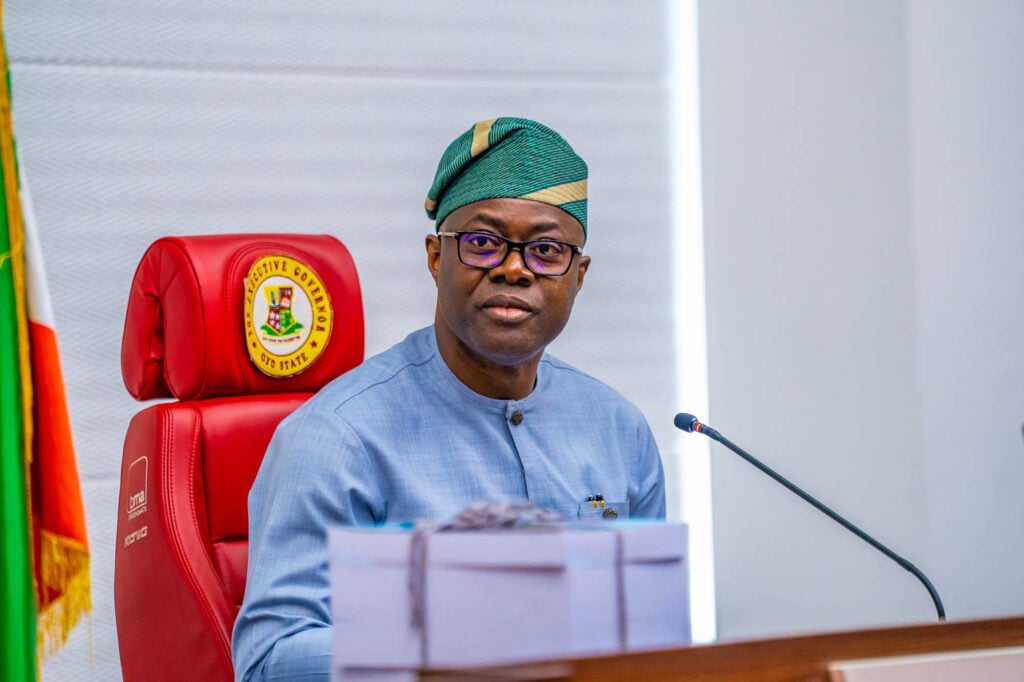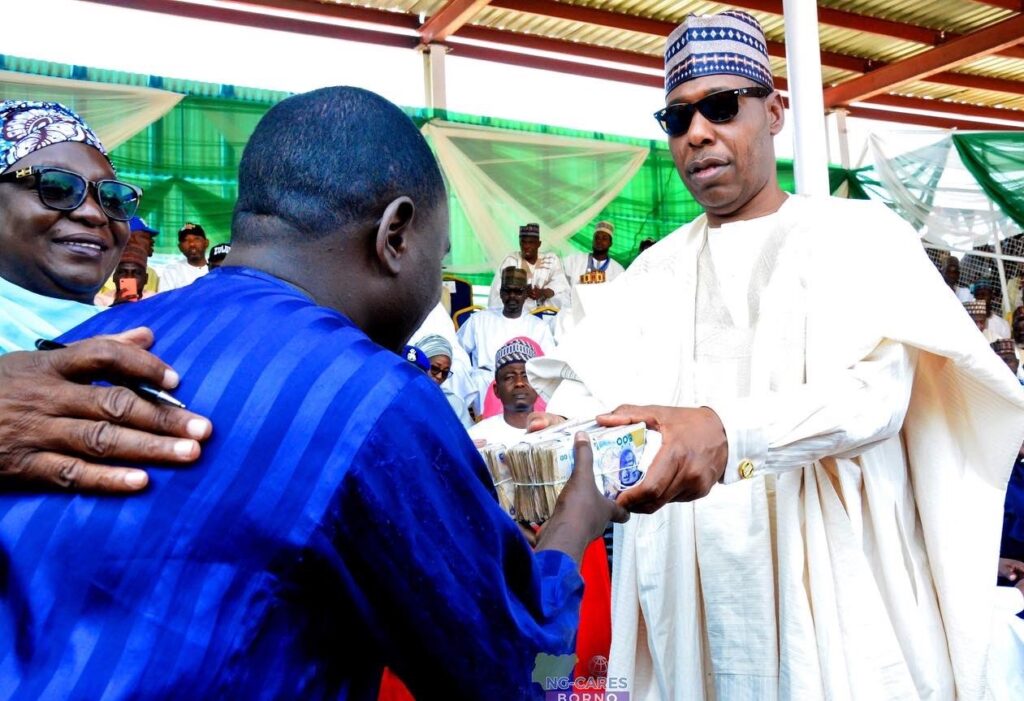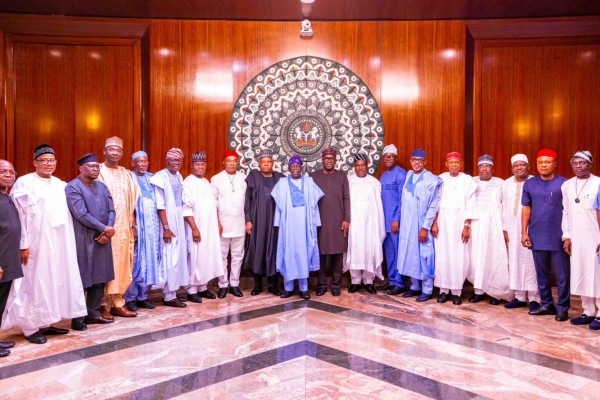On the fourth day of the #EndBadGovernance nationwide protest, President Bola Tinubu addressed Nigerians in a televised speech.
The president addressed several issues in his speech, including his achievements in office, and defended his policies.
As part of efforts by his administration to ameliorate the hardship being experienced by Nigerians, Tinubu said “more than N570 billion has been released to the 36 states to expand livelihood support to their citizens, while 600,000 nano-businesses have benefitted from our nano-grants. An additional 400,000 more nano-businesses are expected to benefit”.
But five days after Tinubu’s speech, Seyi Makinde, Oyo governor, said the federal government did not give his state any money.
Makinde, in issue 95 of his periodic newsletter, said Oyo only got reimbursed for the funds the state invested in the NG-CARES initiative.
Makinde said it became necessary for him to clarify a “concerned citizen” who referenced Tinubu’s speech and asked him (Makinde) what he used the funds for.

“Let me state categorically that this is yet another case of misrepresentation of facts. The said funds were part of the World Bank-assisted NG-CARES project — a Programme for Results intervention,” Makinde wrote.
“We were reimbursed funds (N5.98 billion in the first instance and N822 million in the second instance). We invested in the three result areas of NG-CARES.
“The Federal Government did not give any State money; they were simply the conduit through which the reimbursements were made to States for money already spent.”
WHAT IS NG-CARES?
In 2020, due to the economic impact of the COVID-19 pandemic and as a response to the hardship caused by the pandemic, the federal government, under the leadership of Former President Muhammadu Buhari, sought a concessional loan from the World Bank to the tune of $750 million on-lending to the 36 states and FCT.
Concessional financing provides organisations or companies with access to capital at favourable terms. This can include lower interest rates and longer repayment periods. A concessional loan is extendable on softer terms and typically has long grace periods.
The loan was to implement a two-year short-term emergency response programme named the Nigeria COVID-19 Action Recovery and Economic Stimulus (NG-CARES) between 2021 and 2023.
The programme seeks to mitigate the impact of the COVID-19 crisis in three key result areas:
- increasing cash transfers and livelihood support to poor and vulnerable households
- increasing food security and safe functioning of food supply chains for poor households
- facilitating recovery of MSEs while strengthening institutional support for coordination and delivery through a separate Investment Project Financing (IPF) component.
According to the plan, out of the $750 million, each state can access up to $20 million, the FCT $15 million, and the Federal CARES Support Unit (FCSU) $15 million.
The initiative is financed through the Programme for Result (PforR) at the state level and FCT, while the federal level is funded by the Investment Project Financing (IPF).
In the programme document dated November 13, 2020, the World Bank said Nigeria is central to its mission of eliminating global poverty and that the programme is “fully aligned with the forthcoming World Bank 2020–2024 Country Partnership Framework (CPF) for Nigeria, as well as Nigeria’s Economic Reform and Growth Plan for 2017–2020 and theGovernment’s Economic Sustainability Plan (ESP) to respond to the economic crisis induced by COVID-19”.
IS NG-CARES A GRANT?
No.
The World Bank intervention is a loan to the state governments and has to be paid back.
In fact, the Programme for Results (PforR) nature of the initiative means that states invested their funds in advance, only to be refunded after auditing and verification of expenditure by the global bank.

In 2021, Foluso Okunmadewa, task team leader of NG-CARES for the World Bank, said the programme was designed in such a way that the states would spend their own money in the first batch.
“Each state should be able to earn 20 million dollars within a space of two years. I used the word earn because it is a programme for results approach. It is not as if the money will be given to the states and the state will now have to spend it. No! Then Independent Verification Agent will go and look at the results and on the basis of that, the states will be reimbursed,” Okunmadewa said.
In the Oyo state instance, the programme was domesticated as Oyo-CARES, Lagos-CARES for Lagos state, and in Borno, it is BO-CARES.
In May 2023, Okunmadewa said the government was on track to secure a one-year extension to access the loan.
TheCable cannot independently verify the repayment terms and plan, but in January, Abubakar Bagudu, minister for budget and economic planning, said the loan carries about a one percent interest rate.
“It is important to note that these loans come from the International Development Association, carrying an interest rate of about 1%. However, the federal government is nearing the limit of borrowing under these low-cost loans. Therefore, swift disbursement and timely debt repayment are crucial to maintaining access to these affordable funding sources in the future.” Bagudu said.
HOW MUCH DID STATES GET?
Mohammad Idris, minister of information and national orientation, said so far, the 36 states and the FCT have received a total of N570 billion collectively, contrary to claims that each state got the said amount.
He said N135.4 billion was released in December 2023, and N438.36 billion in July 2024.
“What the States and the FCT collectively received in reimbursements between the end of 2023 and July 2024, under the World Bank-supported #NGCARES program, is a total of N573 billion naira,” he wrote in a post on X.
Idris’ X post buttresses Makinde’s submission that the funds referred to in Tinubu’s speech were indeed reimbursements financed through a loan from the World Bank and not a support grant from the federal government to the states.
The deal was secured, and the initiative took effect in 2021 under the Buhari administration.
From a breakdown of the July reimbursements made available on the NG-CARES website, Zamfara state got the highest at N49,182,347,834 billion while Ogun state had the lowest at N2,125,069,028 billion.
For the December reimbursement, Abdulkarim Obaje, NG-CARES national coordinator, said: “The top three best-performing states in this Second Round of Assessment are Nasarawa, which earned N13,697,828,496.96, Cross River N10,944,747,818.84 and Zamfara N10,231,055,267.82”.


